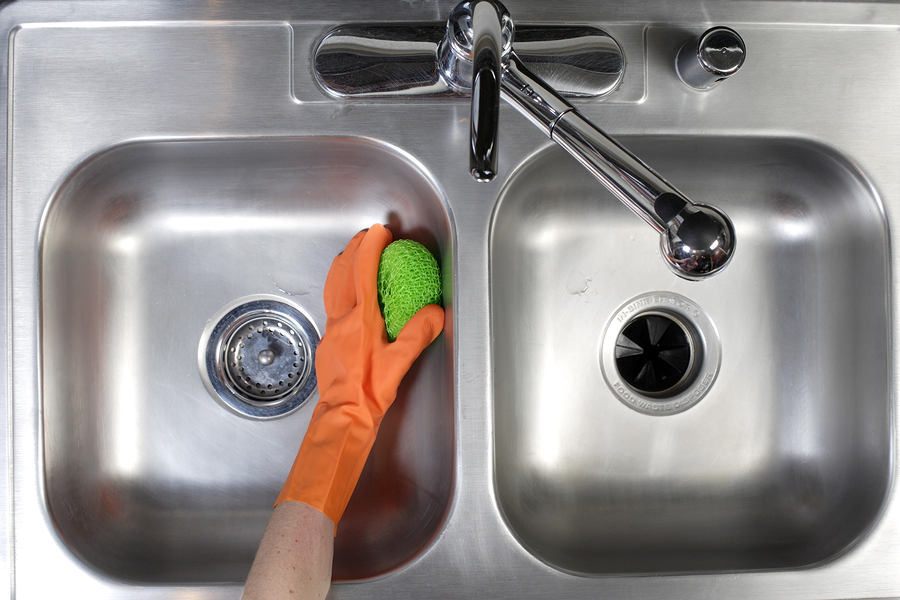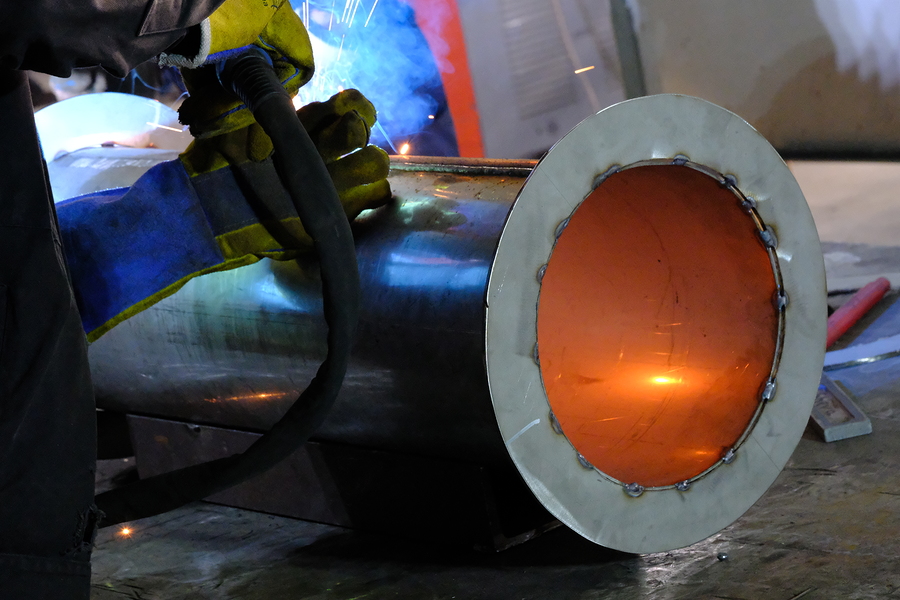Well anyone with a cast iron skillet knows not to leave it in a wet sink overnight. Yet, many of us still forget or neglect this rule of thumb, only to wake up to an unsightly ring of rust tarnishing their once bright and shiny stainless steel sink. Fortunately, this blunder is easily corrected. All you need are a few common household supplies, and a little elbow grease. Even if your sink is ruined from rust and oxidation, you still have the option of recycling it for cash at a local scrap metal yard. Then you can put that cash towards a new stainless steel sink!
Continue reading to learn all of this and more!

Rust Formation on Stainless Steel
Stainless steel isn’t exactly stainless. It is a chromium-based, ferrous metal, which means it is vulnerable to certain kinds of corrosion, such as oxidation, if it is not properly maintained. Oxidation occurs when oxygen and moisture come in contact with stainless steel. Upon such exposure, the properties in the metal will begin to interact with the properties in water and oxygen, which in turn, causes the iron in metal to corrode. Rust is simply a form of iron oxide.
What You Need to Clean Away Rust
Typically, simple baking soda solutions will do the trick when it comes to removing rust from metal. But for cast iron rust stains, you will need something a little stronger. An oxalic acid cleaner and a soft sponge are all you need, both of which can be found online or at your nearest grocery store. For oxalic acid cleaner, we recommend the Bar Keepers Friend® Soft Cleanser, which is a liquid version that does not contain any grit or abrasives. You can also use stainless steel polishes and cleaners, as well as, copper cleaners. You do not want to use anything caustic, or that contains harmful chlorides that will destroy the outer protective layer of your sink.
How to Get Started
The next time you leave your skillet in the sink, here is how to remove the residual rust stains:
🧼 Following the manufacturer’s instructions on your oxalic acid cleaner, apply a generous amount to the stained areas.
🧼 Dampen your sponge, and then scrub the cleaner into the stains, in the same direction of the grain.
🧼 Repeat the gentle scrubbing until you feel like the stain has lifted.
🧼 Then simply rinse your sink clean!
How to Scrap an Old Sink
If your sink is too old, or too stained to clean, you can recycle it at a local scrap metal recycling center. Some scrappers even pay for scrap metal, and an old sink is the perfect piece of scrap metal to recycle! After you recycle your old sink for cash, you can use it toward a brand new sink.
Indiana Scrap Metal Buyers Who Pay Cash on the Spot
Call Zore’s Recycling at 317-244-0700 to recycle steel in Indianapolis, Indiana. Not only has Zore’s Inc. been a family owned and operated company for over 75 years, we pay cash on the spot for your metal commodities. We accept cans, sheet metal, appliances, vehicles, auto parts, equipment, and more! Request a free estimate, today.


